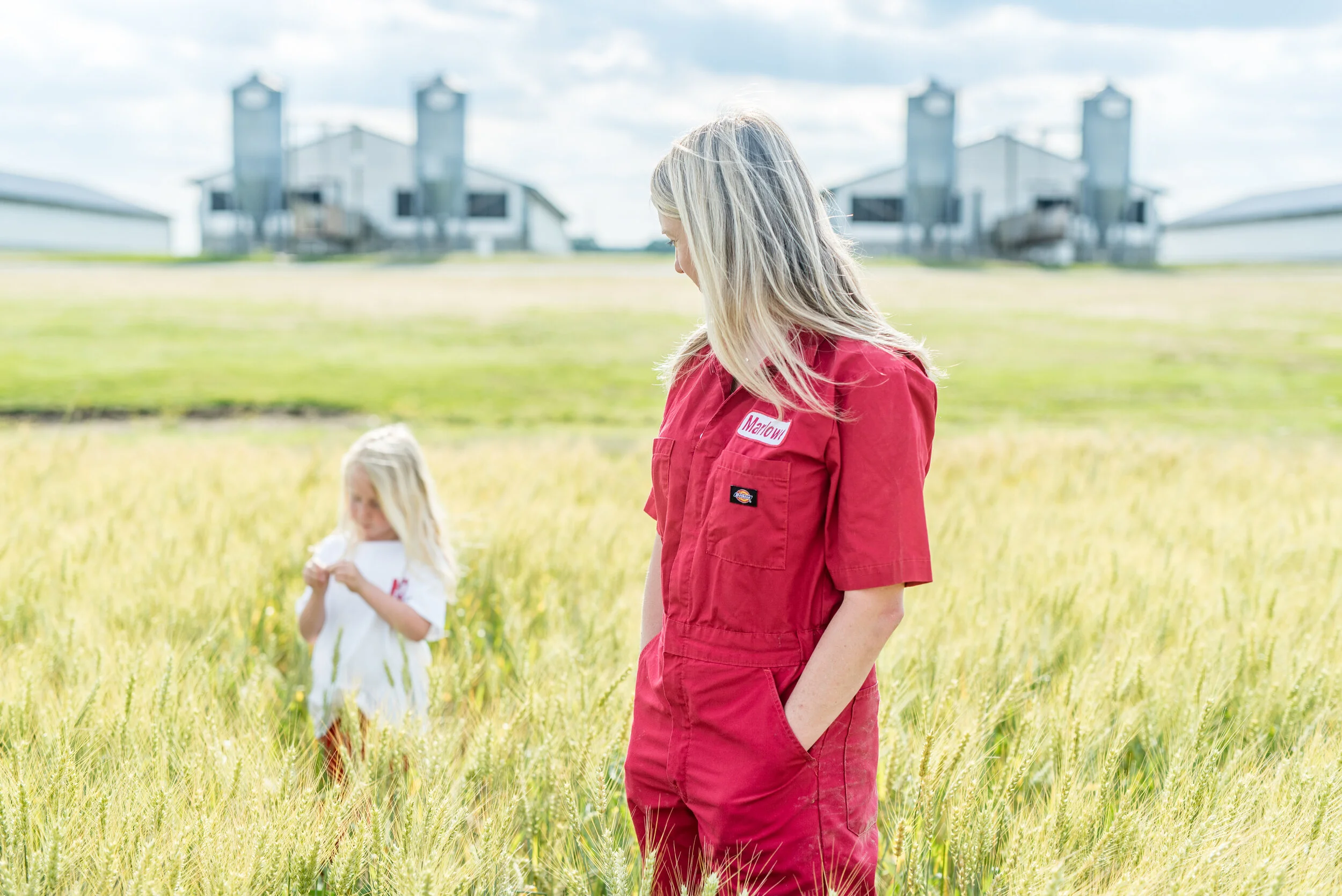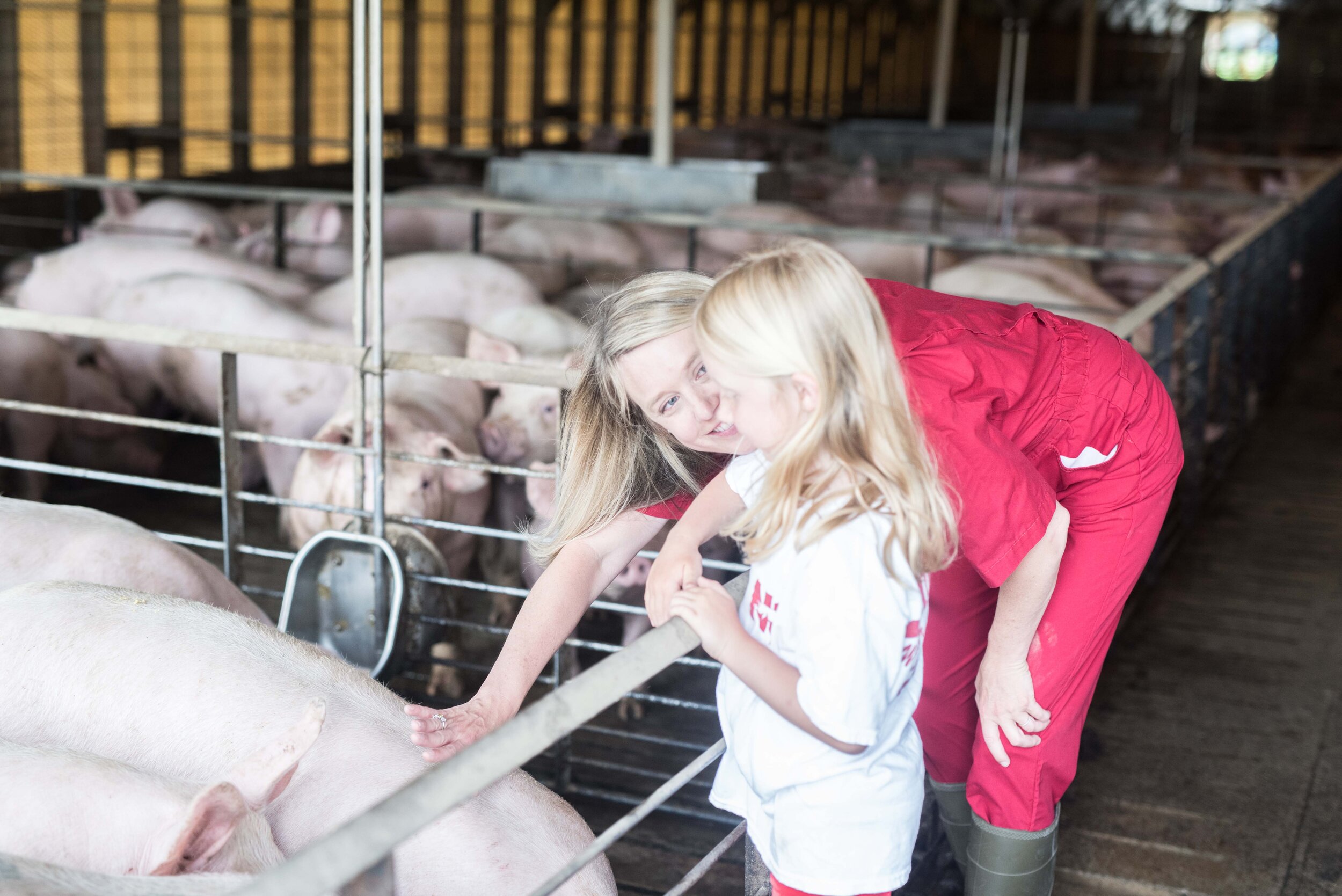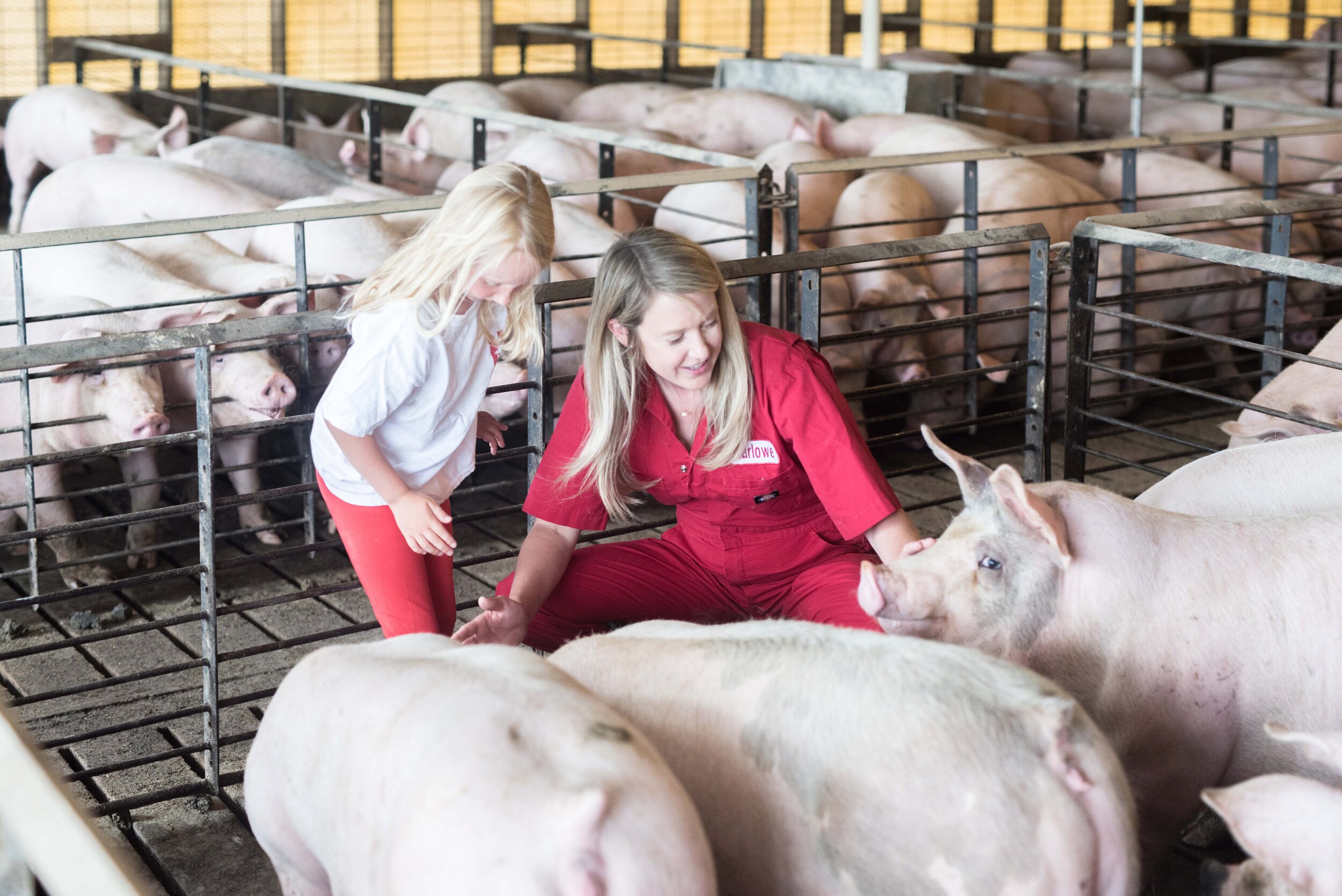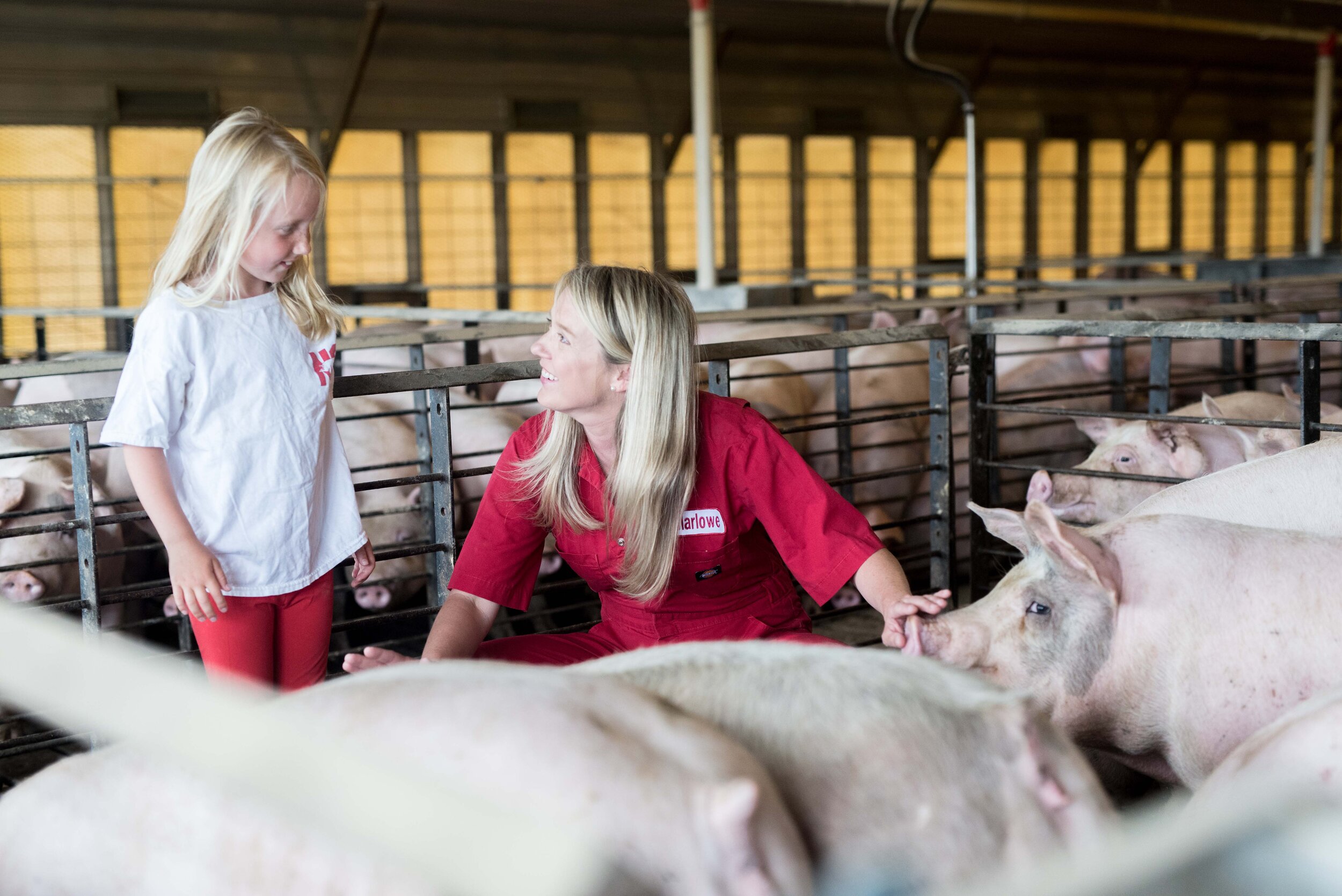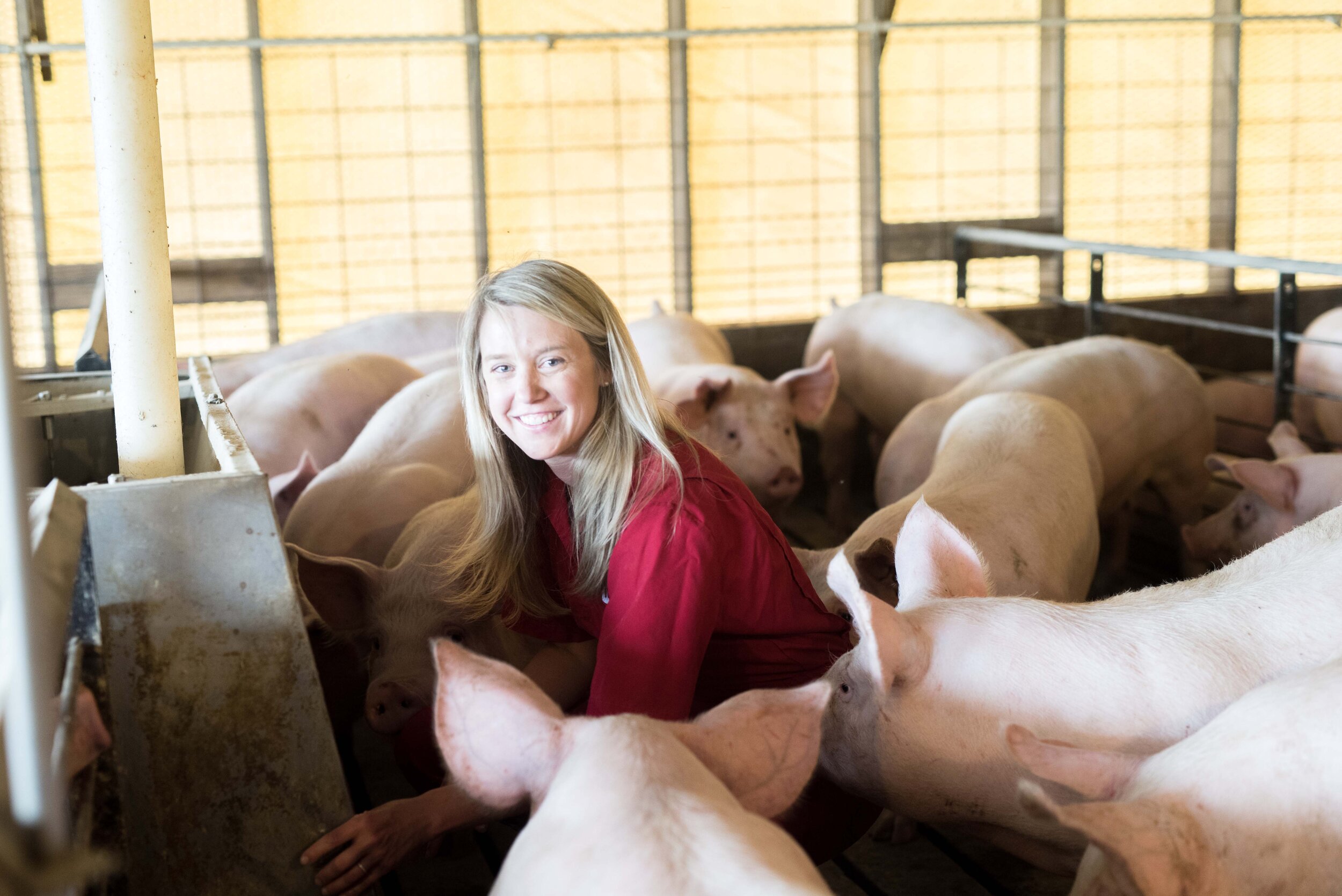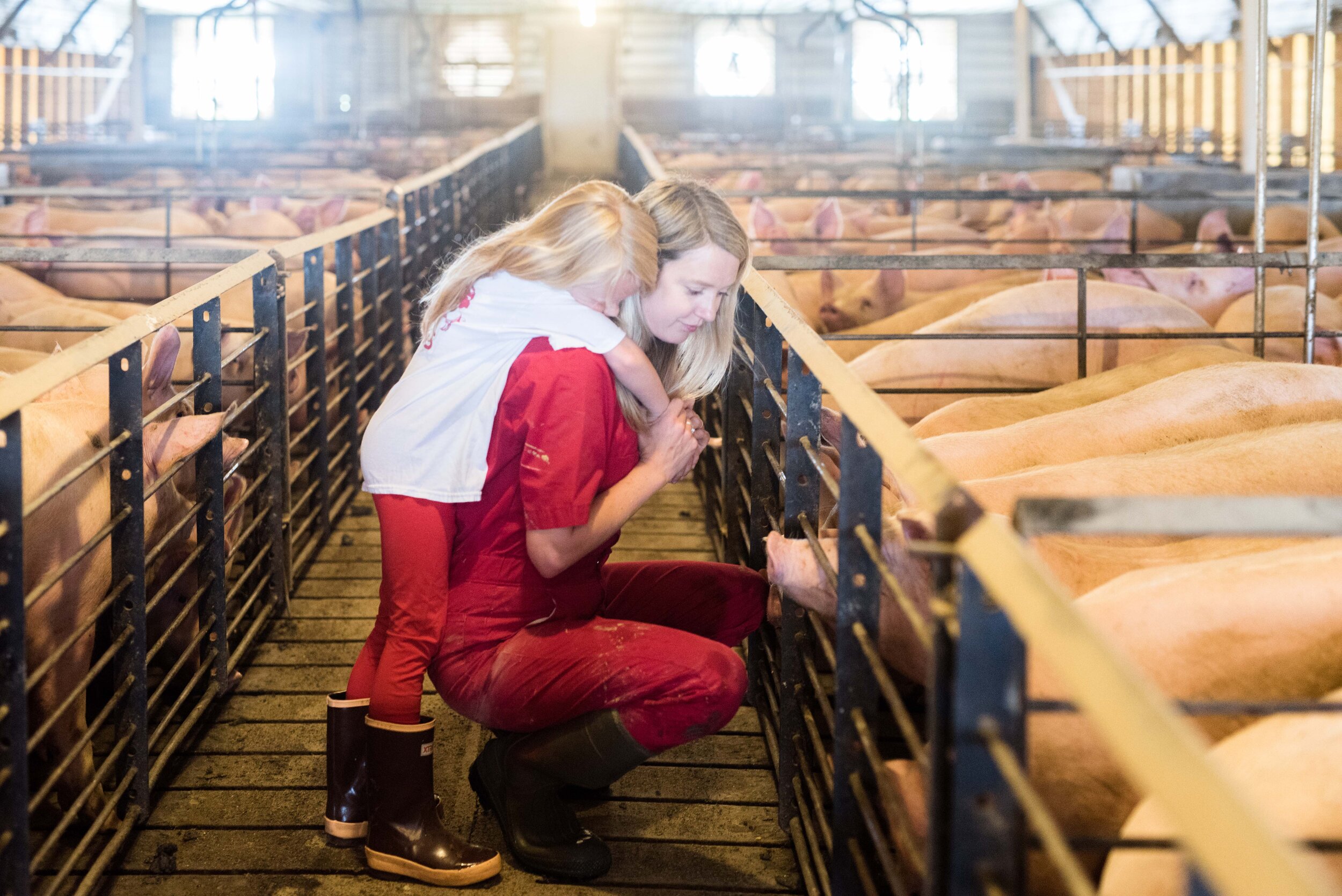Farmkeepers Blog
The Farmkeepers is the official blog of NC Farm Families. It is here that words will flow, our voice will be heard, a stand will be made, and the farm families of North Carolina will be protected. In these posts, we'll set the record straight. You'll see the faces of the families who feed us. Here, you'll receive all the updates and news. It is here that we will fight for farmers and be the keepers of the farm in NC. We hope you'll join us. Follow along on social media and by joining our email list.
The Tenacity of Farmers—How Carolina Swine Integrators Began
One of the character traits of a farmer is to be able to maintain flexibility. They are problem solvers who role with the punches. Farmers are a tenacious group that are not to be deterred. They hold strongly on to hope and faith, because at times that’s the only thing that gets them by. Like many, Darryl Floars and son, Blake, exhibit these traits.
Part 1—Becoming Hog Farmers
In the past two decades, the Floars have evolved a great deal in their farming endeavors. What started as acreage in the mid 90’s for recreational purposes for the family, turned into an opportunity to become hog farmers.
“We’d go there all the time on weekends, riding four-wheelers, shooting skeet, and hunting,” said Darryl.
The Floars asked their neighbor if he ever wanted to sell his land, to let them know. Upon retirement, the gentleman offered the land up to the Floars under one condition—they’d also buy the hog farm. And so, a new adventure began. A decade later, and the family decided to purchase an additional sow farm.
Blake, the youngest of four, took an interest in the farm and chose to go to NCSU for Agriculture Business. He has developed a real passion for the industry.
“I love the farm. I love this industry. I love the people. They’re the most important thing to me,” Blake said.
Blake has made a point to immerse himself in various aspects of the farm from barn work to contracts to educating the public.
“A lot of my friends don’t know what I do or anything about agriculture. I try to make a point to get the word out there a little bit,” Blake shared. “People have never wanted to know more about where their food comes from and never known less about how their food is made. I try to educate. Overall, people are good people. They just want to know, and people have a right to know where their food comes from.”
Hog farming wasn’t always an option for Blake, though. In 2020, he got the news that Goldsboro Milling was closing their hog operations. Blake diverted his plans to return to the farm after graduation and went to Arizona to sell life insurance instead.
Part 2—New Plan
Obviously, the news wasn’t good, especially since the family had just purchased another sow farm 1-2 years prior. Although depressing, Darryl took it all in stride.
“My wife and kids always ask, ‘doesn’t anything bother you?’ The Lord’s been good to us. If I end up with a horse and buggy, that’s okay. I look at it that way,” Darryl said.
This wasn’t to be the end of their hog farming story, though.
“To be honest with you, I didn’t really have a plan. I just prayed for guidance. I had a guy come in who wanted to meet with a guy, and that’s how it started. I really think the Lord put that in place,” Darryl said.
After the meeting, Darryl called Blake to tell him that there might be a viable plan in the works. That was in March of 2021. By October, Blake moved back to the farm full-time.
“I found out life insurance wasn’t for me, and I came back to the farm,” said Blake.
The plan? The Floars would partner with other growers that had gone out of business to supply hogs to a new packer. Essentially, the Floars would become their own integrator, supplying pigs to growers. They put together a plan. Currently, they have a 2,000 head sow farm in operation with plans to expand upwards to 6,000 sows. This would put over 100+ finishing floors back in business. That means a new start for many growers.
Darryl and Blake are really excited about the group they’ve got together so far.
“It’s like a big family. I haven’t known these guys all that long, but it’s turned into a big family of growers, and it’s been awesome to work with them,” said Darryl of their growers. He went on to say how much he values having “good people—good hog people around” him to compliment his more business-oriented mind.
For Blake, the growers are a big part of why he does it: “The growers are some of the highest character people I’ve ever met. That’s what drives me. We have our farms, and we want to get our farms going but really, it’s about that group of people. We want to help them get going again. That’s why I do it.”
Part 3—The Future
After sitting empty for a year, the Floars’ farm is filled with pigs again. The endeavor, called Carolina Swine Integrators, is at what the Floars calls the exciting part. After a lot of planning and hard work, they have sent their first batch of pigs to growers.
“It’s good to see all these parts come together because it’s been about a year in the making. There’s a lot of work that goes into it before you get that first wean pig off the sow farm. It’s a lot of work,” shared Blake. “So, to see that finally come to fruition, has been pretty rewarding recently, but we still have a long way to go. A lot of challenges, but there’s always challenges,” he continued.
Big things are happening at Carolina Swine Integrators. It’s been an all-consuming effort. Darryl says that he is finally able to have a little peace and take time to deer hunt and ride his horse on the farm.
Blake says he’s had a sharp learning curve. “I grew up around the farm but wasn’t involved in the day to day.” He credits everyone in the industry for helping him learn and supporting him. Blake puts a high importance on learning and developing relationships with others in the industry. However, sometimes, he says, he prefers the company of pigs to people.
For Blake and Darryl, they’ve also had to learn to work together. Blake says that “you have to learn where the boundary is between when he’s your dad and when he’s your boss.” That isn’t always simple, though, when farming is your life. “It’s hard for it not to be all-consuming, but after we leave work, I try for him to just be my dad.” For Darryl, Blake is his go-to guy. “He helps me read through contracts and is very detail oriented. He fills in the gaps for me really well.”
While excited to be up and running, they also want to grow, but they want to be smart. “We want to take baby steps. We don’t want to get ahead of ourselves. We do want to grow, but a slow growth,” expressed Darryl.
Blake echoed his dad’s desire to grow but added that they are also focused on sustainability. “Part of being sustainable is being profitable. If we aren’t profitable, we can’t do any of these sustainability things that we hope to do in the future. Sustainability is a big deal,” Blake said.
It’s not just sustainability and growth that the Floars have their sights on. They, like so many farmers, want to do things the right way.
“We care about what we do because at the end of the day we want to be good neighbors. We want to be responsible, and I think farmers are. That’s who they are. They’re high character people. They care for their neighbor. Doing things the right way is in the nature of farmers. We don’t want to take any shortcuts. We want to do it the right way,” Blake said passionately.
What started as just enjoying some outdoor activities in Eastern NC for the Floars turned into so much more. It turned into a career, a test of faith, chasing opportunity, building something new, developing friendships, and maintaining their flexibility. The journey isn’t over, but with the tenacity and faith of farmers, they persevere in new and exciting ways.
The Legacy of a Pig Farmer
On one of her two pig farms, Marlowe Ivey Vaughn changes out of her “good clothes” into her “farm clothes”—her signature red coveralls and a pair of boots. She then turns her attention to a mini Marlowe—her 7 year old daughter, Kivett, who also gets a wardrobe change before heading into the pig barns.
Together, they walk hand in hand down the dirt path to one of the hog houses. They greet the pigs, giving high fives, or rather letting the pigs give them a snout to the hand. The visit isn’t just about socializing, the mother and daughter make sure all the pigs are doing well, have feed, and the water is fresh. Much to the pigs, and Kivett’s delight, Kivett gets to spray the pigs down with the water hose for a bit of fun too.
After visiting the pigs, they check on the fields of corn and wheat that are adjacent to the hog farm. Between the two, the corn is Kivett’s favorite. At the time, the wheat reaches Kivett’s shoulders while the corn hits her hip. Soon, though, the corn will tower over Kivett.
By the end of the day, it is Kivett getting sprayed off by the hose, not the pigs. She’s done what any good farm kid would—played in the dirt and mud.
Marlowe, not entirely thrilled with the thought of putting a muddy child in the car (there may or may not be pig poop mixed in there too), tries to hold back a smile. Because, although currently covered in mud, Kivett is more than her spunky, muddy daughter. Kivett is the future. She like Marlowe, is the daughter of a farmer, and has emphatically said that she too wants to be a pig farmer when she grows up.
In Kivett, Marlowe sees a legacy continue, a legacy that she continued from her dad. Marlowe once walked the barns with her dad, now she walks them with her daughter.
Marlowe didn’t always want to be a farmer. She thought about being a vet, and she tried some other things too, but agriculture and the farm pulled her back. Being a pig farmer is Marlowe’s passion, an identity, and a legacy.
Of course, pig farmer isn’t the only hat Marlowe wears—mom, wife, daughter, friend, executive director… Marlowe juggles a lot. In addition to raising two kids (Kivett has a little brother who just turned a year) and raising pigs, Marlowe raises awareness. Serving as Executive Director of Feed the Dialogue, a non-profit that seeks to start conversations surrounding NC agriculture, food, and farmers. Beyond her work with Feed the Dialogue, Marlowe also advocates for agriculture from her personal social media platforms, sharing daily life as a farmer. She battles misconceptions, shares the real reel, and has even weathered attacks from activists.
“I do this for them,” Marlowe said. “the other farmers who are too busy or don’t have the opportunities to advocate like I do, I do this for them, and I will never stop fighting for them.”
Marlowe is passionate about continuing not just her family’s legacy, but the legacy of agriculture as a whole.
Building a Different Legacy
Her legacy was that she loved with all she had…
The COVID-19 pandemic has brought considerable disruption and change to just about everyone this year, and pig farmers are no exception. The latest sign of that change came in early August when Maxwell Foods announced that it is shuttering its hog operations by mid 2021.
After 31 years, Maxwell Foods said it was a difficult, but necessary, decision. “The Maxwell family recognizes the enormity of this decision and it was with great difficulty that it was made,” the company said in a statement.
As a contract pig grower for Maxwell Foods, Marlowe is one of about 150 pig farms across the state impacted by the news. Working with an integrator is a partnership where each brings important aspects to the table. Overly simplified, the integrator (Maxwell Foods in this case) provides the pigs and resources, while the farmers provide the barns and care for the pigs.
It’s a situation that has farmers like Marlowe filled with uncertainty.
“I’m worried. I’m concerned about the future,” she said. Her connections with Maxwell Foods run long and deep — her dad, Bob Ivey, helped start and build the company three decades ago. She has been a grower for Maxwell Foods from the beginning.
“These are people who I’ve known my entire life — who are a part of who I am… Maxwell Foods is a part of who I was,” Marlowe said. “I want to save everybody. Not all of us are going to get saved.”
For Marlowe, and many others, the closing of Maxwell Foods represents the end of an era.
“I was proud of the legacy Dad built for me and the pig industry. It’s not that the legacy is gone, but it is sad to see the stress that it is under. It’s not stable anymore,” Marlowe said.
For now, farmers like Marlowe are waiting to see how everything shakes out. They are hopeful, but their hearts hurt. They are keenly aware of the challenges that may lie ahead.
Marlowe fears that some people will lose their farms. A loss of farm, is a loss of identity. For farmers, farming is a way of life. And the thought of losing one’s farm is more painful and more personal than losing a job or a piece of real estate. It is a loss of self, legacy, and heritage. It is a loss of a piece of one’s heart.
Agriculture remains the number one industry in North Carolina, with an economic impact of $92.7 billion. And the pork industry is a big part of that — contributing more than $10 billion a year to the state’s economy. Whenever a major agriculture business closes, it has an impact that is felt beyond the individual farms that are affected.
While many like the NC Pork Council remains optimistic that sustainable options will be found for contract farmers in the Maxwell Foods system, it is still a time of uncertainty and change for our farming community.
Marlowe’s daughter, Kivett, will grow up with a different legacy than her momma did. Although she won’t be a third-generation grower for Maxwell Foods, the hope is that Kivett will follow in Marlowe’s footsteps and carry on the family’s legacy of pig farming.
No matter what happens, though, Marlowe says that she will “build a different legacy,” and she will never stop supporting her fellow farmers who are like family.
One part of Marlowe’s legacy, however, remains firmly intact: that she loves with everything she has. She loves her family. She loves her farm. She loves her pigs. She loves her fellow farmers. And she continues to love despite it all.
How you can help: Farmers often say that the two biggest challenges in farming are the weather and misconceptions. There are many more challenges, of course, but these are the greatest. Misconceptions can easily be eliminated if everyone takes the time to understand their food and those who grow it. Marlowe encourages everyone to learn about the pork industry’s history and heritage, with a focus on what the future holds. There’s history in that porkchop that many never stop to consider.








